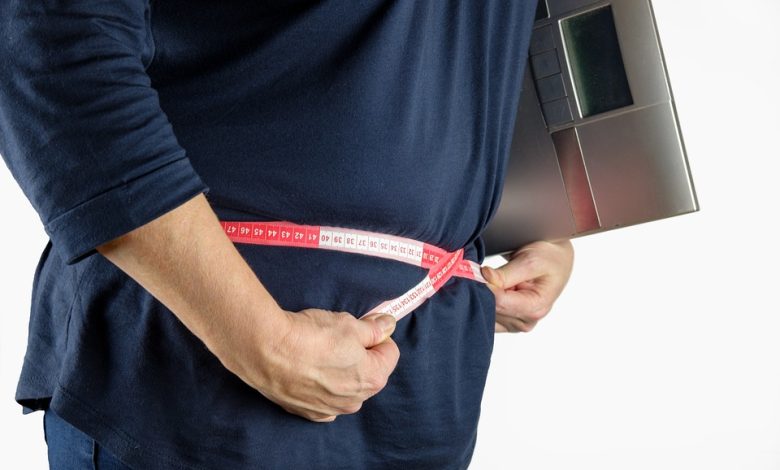List of Blood Pressure Medications That Do Not Cause Weight Gain

Hypertension, also known as high or raised blood pressure, is a condition in which the blood vessels have persistently raised pressure. Blood is carried from the heart to all parts of the body in the vessels. Each time the heart beats, it pumps blood into the vessels. Blood pressure is created by the force of blood pushing against the walls of blood vessels (arteries) as it is pumped by the heart. The higher the pressure, the harder the heart has to pump.
Hypertension is a serious medical condition and can increase the risk of heart, brain, kidney, and other diseases. It is a major cause of premature death worldwide, with upwards of 1 in 4 men and 1 in 5 women – over a billion people – having the condition. The burden of hypertension is felt disproportionately in low- and middle-income countries, where two-thirds of cases are found, largely due to increased risk factors in those populations in recent decades.
How Is Blood Pressure Related to Weight?
As your body weight increases, your blood pressure can rise. In fact, being overweight can make you more likely to develop further complications than if you are at your desirable weight. When you add more weight or become obese, your heart has to work harder to pump blood through your body. But all that extra effort puts strain on your arteries. Your arteries, in turn, resist this flow of blood, causing your blood pressure to rise further.
Can Blood Pressure Drugs Cause Weight Gain?
Yes, a variety of blood pressure medications are linked to weight gain. In fact, weight gain is a common problem for many patients receiving blood pressure drugs and some justifiably raise concerns about the adverse effects of the weight burden.
Sometimes it is not the blood pressure drug itself causing weight gain but the side-effects from the drug. Some blood pressure drugs can stimulate your appetite, and as a result, you eat more. Others may affect how your body absorbs and stores glucose, which can lead to fat deposits in the midsection of your body. Some cause calories to be burned slower by changing your body’s metabolism. Others can affect you in a way that makes it difficult for you to exercise. Other drugs can cause you to retain water, which adds weight but not necessarily fat.
How much weight is gained varies from person-to-person and from drug-to-drug. Some people may gain a few pounds throughout the course of a year, while other people can gain 10, 20 or more pounds in just a few months. Because most blood pressure medications are taken for chronic conditions, you may use them for several years with their use contributing to significant weight gain throughout time.
List of blood pressure medications that can cause weight gain include:
- Atenolol (Tenormin)
- Metoprolol (Lopressor, Toprol-XL)
- Amlodipine (Norvasc)
- Methyldopa (Aldomet)
- Propranolol (Inderal)
- Furosemide (Lasix)
Blood Pressure Medications That Do Not Cause Weight Gain
Blood pressure medications that are NOT known to cause weight gain include:
- Carvedilol (Coreg)
- Lisinopril (Zestril)
- Enalapril (Vasotec)
- Benazepril (Lotensin)
- Ramipril (Altace)
- Spironolactone (Aldactone)
- Hydrochlorothiazide (Apo-Hydro, Aquazide, BPZide, Dichlotride, Esidrex, Hydrochlorot, Hydrodiuril, HydroSaluric, Hypothiazid, Microzide, Oretic)
What can you do?
1. Ask – When a healthcare professional prescribes a new blood pressure medication, ask them if the drug is known to cause weight gain. Discuss your concern about weight gain with your doctor and ask for a medication that will not cause weight gain.
2. Be Aware – If you have been gaining weight after starting a new blood pressure medication, ask your doctor if the new medication could be to blame. Most medications that cause weight gain will have their effect early – within six months of starting. Importantly, it is not just a matter of putting on a few pounds. Extra weight, regardless of where it comes from, can cause or worsen health conditions. Diabetes, high blood pressure, osteoarthritis, metabolic syndrome, and high cholesterol all may begin or may be made worse by added excess weight.
3. Be Smart – Know about the medications that may cause weight gain. You should also be aware that while some medications don’t cause you to gain weight, they may make it more difficult to lose excess weight.
How can I avoid gaining weight on blood pressure medication?
Eating a potassium-rich diet is great for people who are looking to lose weight gained because of blood pressure medications — potassium flushes out sodium. And a potassium-rich diet is linked to other health benefits, such as reduced blood pressure, protection against stroke, and osteoporosis prevention. Examples of potassium-rich foods include avocados, bananas, sweet potatoes, spinach, beans, and salmon.
In addition, you can also offset weight gained or work off excess weight by engaging in exercise. Regular physical activity can help bring blood pressure down to safer levels. Some examples of aerobic exercise that can help lower blood pressure include walking, jogging, cycling, swimming, or dancing. Another possibility is high-intensity interval training.
You should also consider going for a walk with family and friends instead of watching TV or having coffee. Being active burns calories, which helps offset any drug-induced weight gain.





